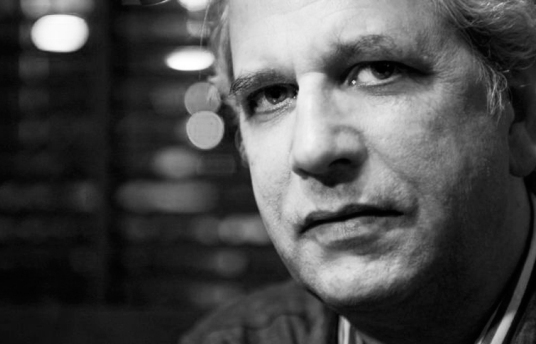People in Film: Michael Singh
Dec 18, 2012

At the fourth edition of the Doha Tribeca Film Festival, DFI’s editorial team had the chance to interview Michael Singh about his latest film, ‘Valentino’s Ghost’. The documentary undertakes an intensive investigation of the representation of Arabs within mainstream media and how these depictions influence audiences’ perception of the Middle East, Arabs and Islam.
DFI: What inspired you to explore the representations of Arabs in media?
Singh: My goal is to help normalise Islam. I grew up in a culture where Islam was normal, which was in India. When I moved to the States I noticed the denigration of Muslims and specifically Arab Muslims. This treatment was socially acceptable and the vocabulary that was used to described Arabs and Muslims was identical to the vocabulary implemented by the early American settlers to describe the Native Americans. This vocabulary was also evident in the language used by the plantation owners and even the Nazis in Germany. After I was told a number of times that this would have career implications, it got me even more excited.
I am not pro-Arab or anti whatever the other side is. But I am pro-justice and believe that the distortion of images does lead to injustice—ignorance is the bedrock of bigotry. On an intellectual level, I find that there are some giants in the artistic and intellectual world who are deeply bigoted against Arabs and Muslims. All of these elements led me to do research, to investigate if there is a film exploring this issue. Films about the denigration of Jews, African, Native and Chinese Americans have all been made, but the one group that is most victimised at the present time has been omitted. I looked around and asked, ‘why isn’t someone exploring this?’
DFI: How do you think your film will be received in the Middle East?
Singh: I think the film will be received well, but I don’t predict that it will have a surprise factor. At the film’s premiere at the Venice Film Festival, we were very honoured to have it screened there, audiences gave a standing ovation. Here audiences are not so startled because they know it all. It is an affirmation rather than exposé of the Arab world.
DFI: With such a challenging film, how did you begin to prepare for a narrative that explores the representations of Arabs over almost a century?
Singh: The preparation was mainly plunging in to the subject matter and doing a lot of reading. Even though a film had not been made about this issue, lots of writing had been done. My co-producer Catherine Jordan and I did extensive readings to create lists of ideal interviewees, watched a lot of films, tape television shows, and gathered a rather large library of what we considered to be evidence. At the same time we also spent half of our daily hours raising funds—and this process went on for years.
DFI: In your opinion, what is required to make the shift from Arab as villain to a more multi-faceted character within mainstream media and the world of film?
Singh: What we need is better education about the subject and a change in attitude. I do see certain filmmakers trending towards portraying a more complex set of Arab characters who have lives, who have families, who are not voiceless. ‘Three Kings’ and ‘Miral’ are two positive examples, so I do see hope that changes are taking place and that the campaigns against stereotyping are gaining leverage.
DFI: How important is it to have this change curated by Arab filmmakers and specifically filmmakers in the Middle East?
Singh: I think that a complex portrait of Arabs and Muslims has been going on since the beginning of the medium and that it has had little effect. Americans don’t tend to watch films by Middle Easterners, Scandinavian or even European filmmakers of any kind. Currently, Arab Filmmakers don’t have access to large enough audiences in the United States to make a substantial difference.
DFI: Does the film serve as a call-to-action for audiences and filmmakers?
Singh: As an audience member, boycotting American films and television shows, while publicising the boycott, is one way to do it. I was recently speaking to a young Arab man who loves the series ‘Homeland’, but he was torn because there was a lot of denigration of Arabs within this series. The ‘good Arab’ of course was the exception to the rule. If there could be some sort of collective action I think that audiences can affect change. Filmmakers can change representations by using their talents to create films that explore what is going on in mainstream media.
DFI: How do you challenge yourself as a filmmaker?
Singh: One way of challenging myself, is looking inward rather than looking to the news. I don’t think that there is anything wrong with looking to news for your subjects, but I look inside and gauge my own feelings of joy, disgust or surprise. If it’s a feeling that won’t go away and if it fascinates me then it’s going to fascinate other people—and it has worked so far. When I began the film, I would safely say that it was extremely obscure. No one knew what I was talking about. No one cared what I was talking about, and then more and more people cared and understood. The whole time I just had faith that I’m the average viewer and that I don’t have exceptional abilities to discern or analyse. I see myself as a kind litmus test – if it captivates me, it is going to captivate other people. My next projects fascinate me and are of no interest to other people—so I think I am on the right track.